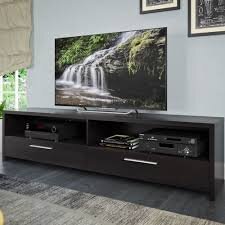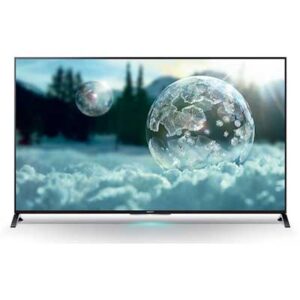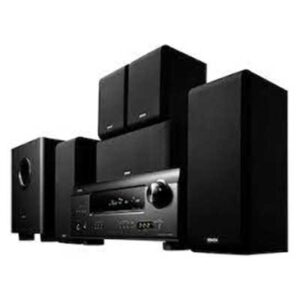Led TV: Revolutionizing The Home Entertainment Experience Leave a comment
In the fast-paced world of technology, TV has gone a long way from their birth. LED TV (Light Emitting Diode Television) has become the go-to solution for people who desire a higher visual experience in their homes.
With their sleek design, energy economy, and outstanding image quality, LED TVs have changed the home entertainment market.
In this post, we will discuss the numerous characteristics of LED TV, including their technology, advantages, and points to consider when choosing one.
Understanding LED TV Technology
LED TVs feature light-emitting diodes (LEDs) to provide lighting behind the display screen.
These diodes are more energy-efficient and give greater colour reproduction compared to typical LCD (Liquid Crystal Display) TVs.
The LED technology raises contrast levels, improves black levels, and gives a broader colour spectrum, resulting in a visually engaging experience.
Advantages Of LED TV
LED TV provides significant benefits over their predecessors and other display technologies.
Firstly, they require less electricity, making them more energy-efficient and ecologically beneficial. Secondly, LED TV offers brighter pictures with greater contrast ratios, resulting in a more colourful and realistic picture quality.
Additionally, LED TVs feature a small and streamlined design, conserving space and providing a contemporary touch to any area. They also have a longer lifetime compared to other display technologies.
Different Types Of LED TV
LED TVs come in many forms, including edge-lit and direct-lit ones. Edge-lit LED TVs feature LEDs arranged around the edges of the display screen, resulting in a slimmer and lighter design.
On the other hand, direct-lit LED TVs have LEDs mounted behind the whole display, enabling more precise control over local dimming and boosting image quality.
Factors To Consider When Buying An LED TV
When selecting an LED TV, various variables should be taken into account. These include screen size, resolution (HD, Full HD, or 4K), refresh rate, connection choices, smart features, and budget.
It is vital to strike the correct balance between these aspects depending on your tastes and needs.
Setting Up Your LED TV
Properly setting up your LED TV may drastically improve your viewing experience. Ensure that the TV is mounted on a solid surface and positioned at an appropriate viewing distance and angle.
Connect external devices such as cable/satellite boxes, game consoles, and sound systems for a comprehensive entertainment setup.
Calibrate the image and sound settings according to your preferences to optimise the performance of your LED TV.

Enhancing The Viewing Experience With LED TV
LED TVs provide numerous features and technology to improve the viewing experience. These include high dynamic range (HDR), local dimming, motion interpolation, and smart TV features.
HDR offers a greater range of brightness and colour, resulting in more realistic pictures. Local dimming boosts contrast by dimming particular portions of the screen, creating deeper blacks and brighter whites.
Motion interpolation decreases motion blur, making fast-paced action sequences look smoother. Smart TV capabilities enable customers to access streaming services, surf the internet, and watch interactive content on their LED TVs.
Comparing LED TV With Other Display Technologies
LED TVs have gained popularity owing to their better performance and cost compared to other display technologies.
When compared to LCD TVs, LED TVs provide improved image quality, stronger contrast ratios, and energy economy.
While OLED (Organic Light Emitting Diode) TVs feature deeper blacks and broader viewing angles, they are often more costly than LED TV.
Common Misconceptions Regarding LED TV
There are a few frequent misunderstandings concerning LED TVs that need to be addressed.
Despite the name, LED TVs still employ liquid crystals for picture creation, with LEDs supplying the illumination.
LED TVs also have a longer lifetime compared to LCD TVs. Furthermore, it is crucial to remember that LED TV is not immune to screen burn-in, although it is less prevalent than with previous display technologies.
Caring For Your LED TV
To maintain the lifetime and best performance of your LED TV, adequate maintenance is important. Keep the TV clean by using a soft cloth to remove dust and fingerprints.
Avoid using aggressive cleaning products that may harm the screen. It is also suggested to install a surge protector to preserve the TV from power surges. Finally, maintain sufficient airflow to avoid overheating.
Future Trends In LED TV Technology
LED TV technology continues to grow, and future advances offer intriguing opportunities.
The integration of AI (Artificial Intelligence) and voice assistants will further improve the smart features of LED TV.
Manufacturers are also focusing on mini-LED technology, which offers even improved contrast and targeted dimming capabilities. Additionally, developments in OLED technology may lead to more cheap OLED TVs in the future.
Conclusion
In conclusion, LED TV have altered the way we enjoy home entertainment. With their cutting-edge technology, energy economy, and breathtaking graphics, LED TVs provide an immersive and compelling watching experience.
When selecting an LED TV, consider elements such as screen size, resolution, and price to discover the best match for your requirements. Embrace the future of home entertainment with an LED TV and raise your watching experience to new heights.

FAQs
1. How does an LED TV work?
LED TVs utilise light-emitting diodes (LEDs) for backlighting, which illuminate the liquid crystal display (LCD) panel and generate the pictures you see on the screen.
2. Can LED TVs be wall-mounted?
Yes, most LED TV is intended to be wall-mounted, giving a stylish and space-saving alternative for your home entertainment setup.
3. Are LED TVs more costly than LCD TVs?
LED TVs are often priced similarly with LCD TV, and their energy economy and greater image quality make them a good investment.
4. Do LED TVs utilise less power?
Yes, LED TV utilises less electricity compared to typical LCD TVs, resulting in energy savings over time.
5. Can LED TVs show 4K content?
Yes, many LED TV is capable of showing 4K video, giving amazing pictures with greater clarity and detail.
Visit our Facebook:












